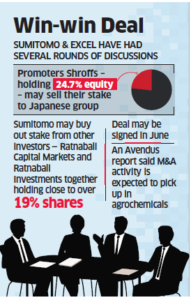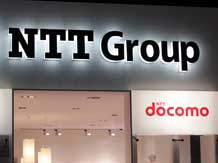 TOKYO: Japanese conglomerate SoftBank and a number of investors here have shown keen interest in investing in India’s “infrastructure growth story”, Finance Minister Arun Jaitley said today as he kicked off his 6-day visit to Japan aimed at attracting investments from Asia’s second biggest economy.
TOKYO: Japanese conglomerate SoftBank and a number of investors here have shown keen interest in investing in India’s “infrastructure growth story”, Finance Minister Arun Jaitley said today as he kicked off his 6-day visit to Japan aimed at attracting investments from Asia’s second biggest economy.
After a meeting with Jaitley, SoftBank Group CEO Masayoshi Son said he is also interested in Internet companies as well as solar energy sector, where he has already announced $20 billion investment through a joint venture.
“There are people who want to participate in infrastructure growth story. For example, at the SoftBank meeting we just had, they are looking at one of the biggest investments in solar power already,” Jaitley said after meeting Son.
“There are people who want to participate in infrastructure growth story. For example, at the SoftBank meeting we just had, they are looking at one of the biggest investments in solar power already,” Jaitley said after meeting Son.
In June last year, SoftBank announced that the group was forming a joint venture with Bharti Enterprises and Taiwan’s Foxconn Technology Group to invest about $20 billion in renewable energy in India. The JV would aim to generate 20 gigawatts of electricity.
“They have made considerable headway and have identified location. It will probably be one of the largest investment in those areas,” Jaitley said.
The Japanese telecom and Internet giant has made a string of tech investments in India, amounting to $2 billion in the past two year. SoftBank is looking at accelerating the pace of investments in the future.
“India has a great future… We are interested in investing for Internet companies, also for solar energy. We would make a strong commitment,” Son said.
He had previously said that India’s market is poised for massive growth, making it an important destination for investors.
SoftBank’s investments in the past two years include $627 million in online-retailing marketplace Snapdeal and leading a $210 million funding round in taxi-hailing app Ola Cabs.
It paid $200 million for a 35 per cent stake in InMobi, an Indian mobile-advertising network, starting in 2011.
SoftBank also has a JV with Bharti Group, Bharti SoftBank, the investments of which include the mobile application Hike Messenger. Its other investments include real-estate website Housing.com, hotel-booking app Oyo Rooms and Grofers.
Son had previously predicted that India’s e-commerce industry would become a $500 billion business in the next 10 years.
SoftBank, which owns one of Japan’s biggest mobile carriers and a controlling stake in US-based Sprint Corp, has been moving quickly to expand its Internet and media holdings.
As the largest shareholder in Alibaba Group Holding Ltd, the Chinese e-commerce company, SoftBank has ample resources to deploy for acquisitions.






